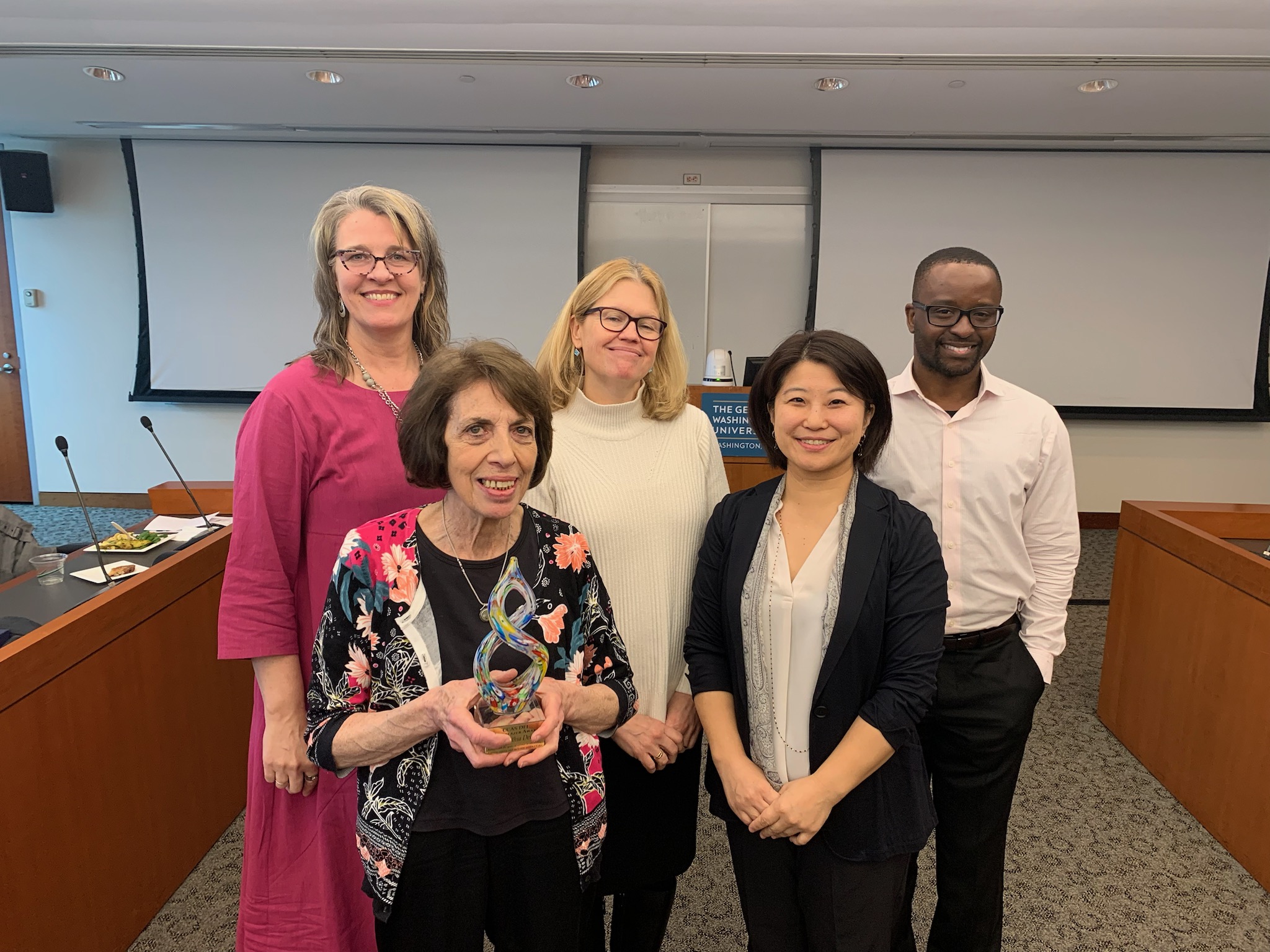Congratulations to Professor Cynthia Deitch who is the inaugural recipient of the Columbian College of Arts and Sciences (CCAS) award honoring women who have contributed to diversity, equity and inclusion at GW. The Women's, Gender, and Sexuality Studies (WGSS) program proudly presented this award to her on March 27th. It was then announced that the award will be named after Professor Deitch for future recipients.
The Sociology Department has been fortunate to have Professor Deitch and her scholarship in gender, work, labor markets, and policy. She has published quantitative studies of public opinion and abortion, gender differences in support for social welfare policies, gender and race discrimination litigation patterns, intersectional analyses of displaced workers’ job loss during periods of recession, and corporate work-family benefits policies. Her other publications have focused on feminist methodology, workplace sexual harassment, gender and race discrimination law and policy, feminist activism, community responses to unemployment and plant closings.
While at GW, she has received research grants externally from the American Sociological Association (for a study of immigrant domestic workers), the U.S. Department of Labor Women’s Bureau (on gender, race, and job loss during a recession), the Institute for Women’s Policy Research (on workplace sexual harassment), and internally from the GW Center on Globalization (on gender, race, and high-tech work), and the Honey W. Nashman Center (on DC paid sick leave policy and low-income workers).
Her most notable article is in a 1993 Gender & Society article about the inclusion of women in Title VII of the 1964 Civil Rights Act. This was a very early intersectional article that helped establish the state as a gendered, racialized, and capitalist entity. In it, Professor Deitch described the attempts that legislative opponents of the Civil Rights Act made to splinter the bill’s support, including an effort to sidetrack the bill by adding the word “sex” into it, which was met with laughter from the men in the U.S. House. Because the inclusion of protections against gender discrimination was a potential threat to the bill, Professor Deitch found, it was Southern anti-civil rights men who supported its inclusion, and pro-civil rights men who opposed it. In her incisive intersectional analysis of the text of the Congressional debate over this bill, Professor Deitch argued that it was not a politics of inclusion or common cause that enabled gender to be included in Title VII, but rather, the attempts by all involved parties to marginalize the gender discrimination that Black women face. In her words, “When both the dominant and the oppositional discourse tend to construct women, Blacks, and labor as separate and distinct categories or constituencies, the underlying interconnections are distorted.”


